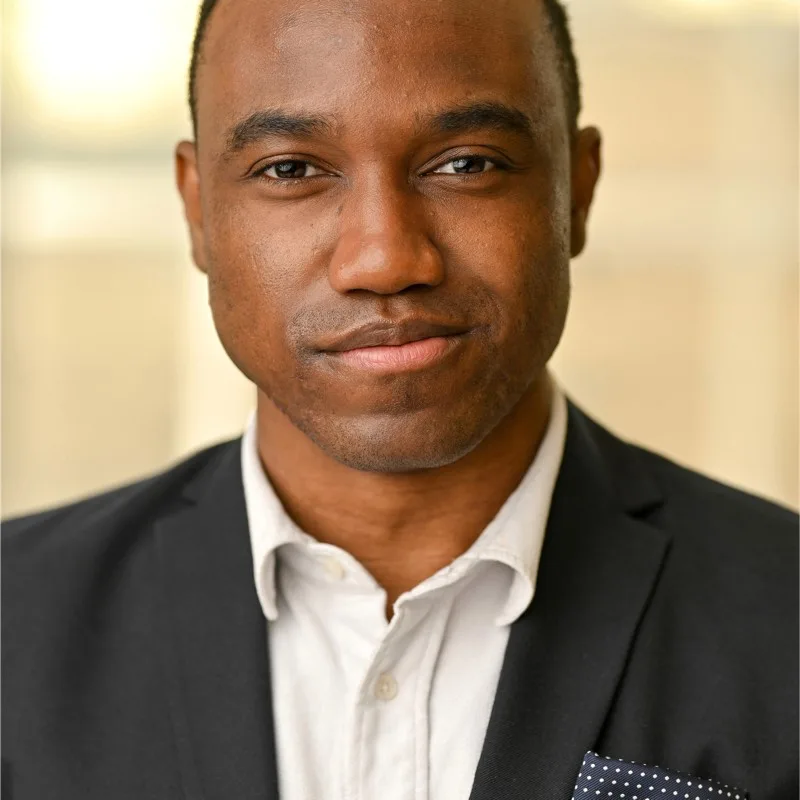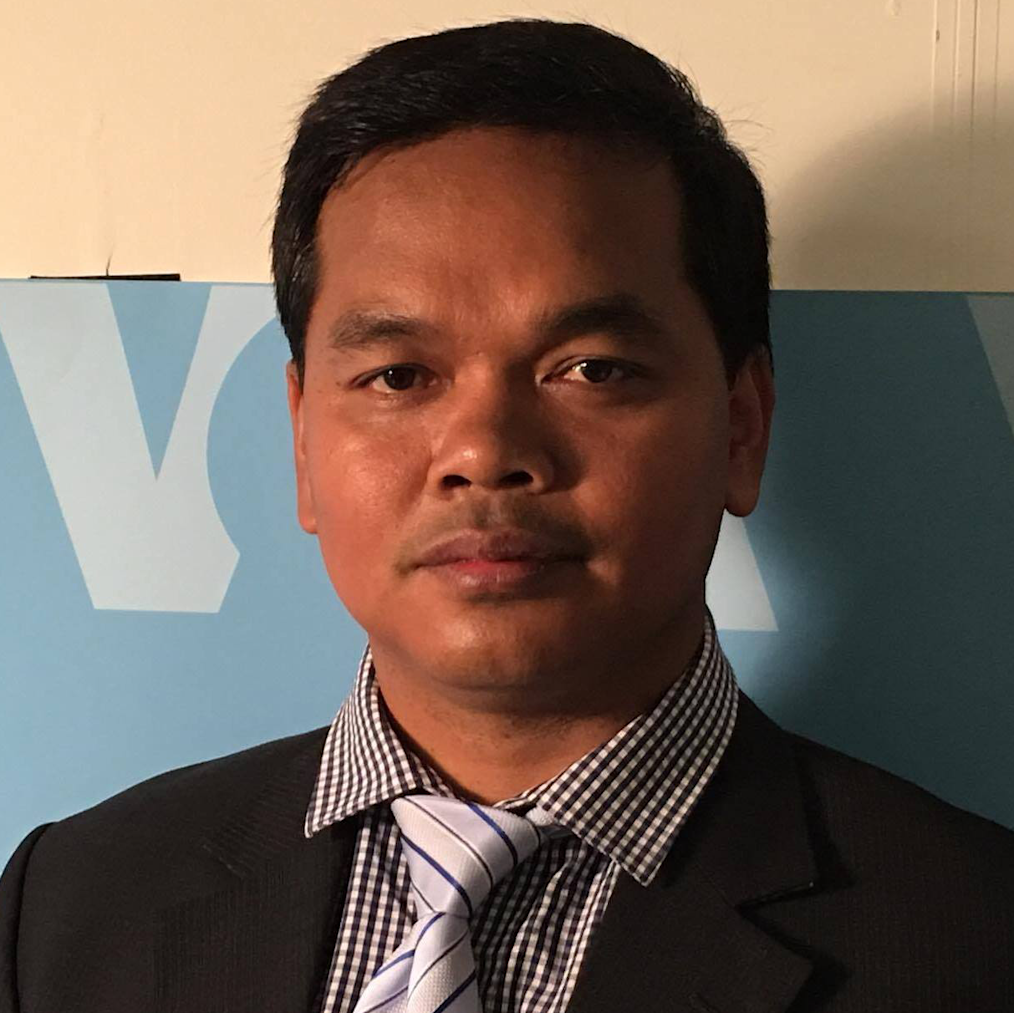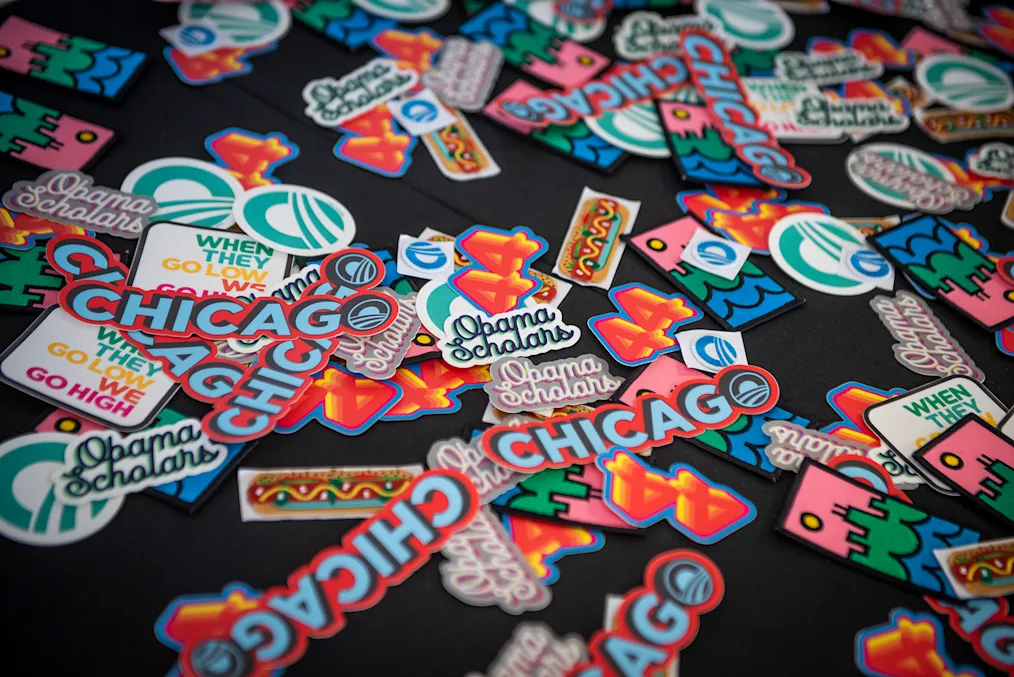What scares Obama Leaders? (Hint: it's not ghosts)
Hear from Obama Leaders on how they're turning what scares them into fuel for change.

Oct. 31 is considered by some to be the spookiest day of the year. With that prompt in mind, we asked our Obama Leaders—who are working on some of the most pressing challenges of our times—what scares them right now. What fears are they sitting with at this moment? And how are they working with their teams, communities, and each other to address these fears, turn toward hope and move toward action.

Zenge Simakoloyi
2024-2025 Obama Foundation Africa Leader
Host and Producer, Africa 4 Dummies Podcast - Zambia
Listen to Zenge share his fear.
What scares him: The rise of authoritarianism disguised as popular revolution.
“In the political landscape, it's unsettling how readily people fall into authoritarianism,” Simakoloyi says. “My fear is that many of these frustrated Gen Z citizens will put their trust into military-authoritarian-style governments, which seem to be dealing with popular demand, but don't take into consideration checks and balances.”
He points to recent uprisings across Africa where military forces have co-opted youth movements.
“The anti-Mugabe popular uprising was captured by the military, and basically the same party came again,” he explains. “I'm very concerned that frustration with the inability for democracy to deliver will result in Gen Z, particularly, trusting elements that might just end up being worse.”
How he's fighting back: Through his podcast "Africa 4 Dummies," Simakoloyi breaks down complex political issues for young Africans, making credible information accessible.
“Our add-on is that we are young African, actual African people with a multicultural exposure that are giving credible, reliable information and explaining it in a way that is accessible to the wider public, to young people,” he says.
The podcast tackles policy over personality, recently featuring discussions on cybersecurity laws to Gen Z protests in Kenya and Madagascar.
“I'd like to have a way of overcoming this supposed fear by having people discuss policy issues where the constitution and policies and laws are the things that people are debating, not personal antics," he explains.
His advice to young people? “Change of government is not always better government. It's which government and how the change happens. How they change and who is replacing is more important than just changing."

Kesha Ram Hinsdale
2023-2024 Obama Foundation United States Leader
Chair of the Economic Development, Housing and General Affairs Committee, Vermont State Senate - Vermont
Hear from Kesha about what scares her most.
What scares her: The deepening economic scarcity threatening American families.
“A lot is keeping me up at night,” Ram Hinsdale says. “I am deeply worried, particularly for the people of our country and our state, that there's no more pennies to pinch anywhere. This will mean deep despair and loss of life.”
How she's fighting back: Ram Hinsdale, the first woman of color to serve in the Vermont State Senate, has championed three major housing bills in three consecutive years. The Home Act ended single-family zoning. She also led a $2 billion infrastructure package —the largest in Vermont's history.
“One of the criticisms that's come to politics is you spend the money but you don't make it cost less,” she says. “I felt good that we said, 'We have to make this cost less and move faster, and now we're going to fund it.'”
Her approach is simple: Show up.
“Show up at your local planning commission to support new housing in your community. Show up to support your local library. Nothing can replace showing up and being in time and space with one another,” she urges. “More people are just waking up, finding each other, getting organized, and realizing that politics does affect them."

Chanroeun Pa
2024-2025 Obama Foundation Asia-Pacific Leader
Founding President, Cambodian Institute for Democracy - Cambodia
Chanroeun shares his fear. Tune in.
What scares him: Running out of time to empower Cambodia's youth before critical elections.
“What’s scaring me the most now is I don't have the resources to do what is important for Cambodia in a complete way," Pa says. “We will have important national elections in 2027 and 2028. My mission is to inspire people to challenge themselves and to shape our society. I like the slogan of the (Obama) Foundation—to inspire, to empower, and to connect with people. This is the thing that I would also like to do in Cambodia because we've been divided for a long time, especially by different political ideologies.”
H ow he's fighting back: Pa runs youth democracy camps that challenge misconceptions about democratic participation. “Some young Cambodians often believe that democracy is about election—election is democracy. But in fact, election is just a part of democracy,” he explains. “Democracy is a living thing. We have to practice. We have to engage. We have to be active every day.”
He takes inspiration from Martin Luther King Jr.'s words: “If you can't fly then run, if you can't run then walk, if you can't walk then crawl, but whatever you do you have to keep moving forward.”
“We need to find other ways to keep moving. I am doing what I can now with what we have, where we can,” Pa said.
Pa's institute cultivates critical thinking among young people to combat misinformation.
“By cultivating that kind of skill, critical thinking and mindset, I believe we can keep misinformation in control and support people to evaluate, to analyze information and make informed decisions rather than just go with the flow,” he says.
This Halloween, these Obama Leaders aren't just naming their fears, they're taking action to confront them. From podcasts to policy discussions to youth democracy camps, they're turning what scares them into fuel for change.
What's your fear?
Explore more stories:

- Stories
- Education

- Stories
- Community Engagement

- Stories
- Presidential History